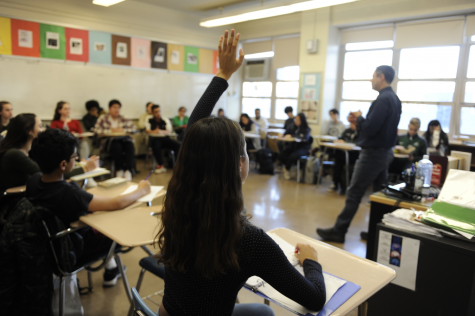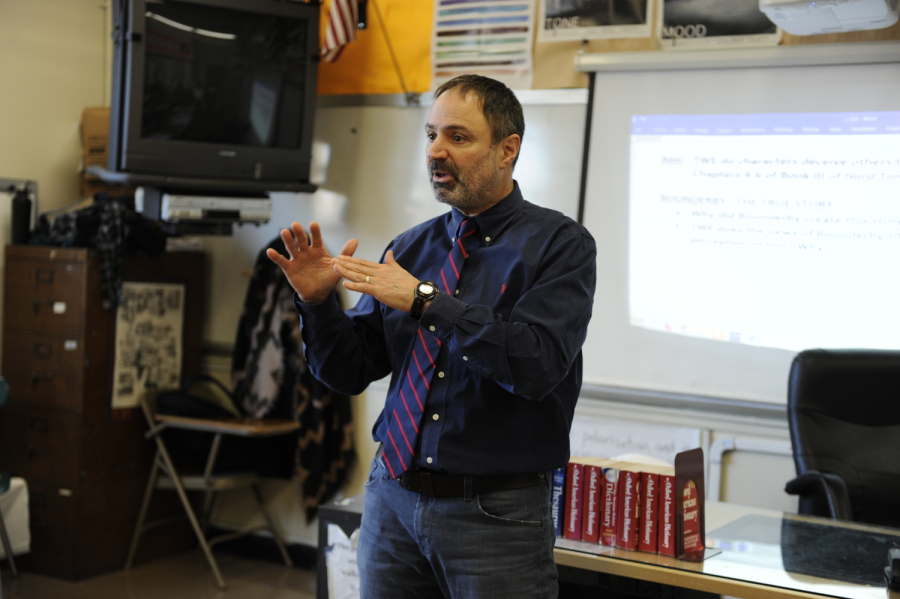The Origins of Honors Speech
Mr. Gazzola speaks to his class about the dynamics of the plot in Shakespeare’s ‘Macbeth.’
First introduced by Richard Sodikow in the 1970s, Forensics, now known as Honors Speech, was once a class exclusively for members of the Speech and Debate Team and was intended to improve their speaking skills. After Mr. Sodikow’s retirement, Mr. Joseph Gazzola, an English teacher at Bronx Science, oversaw the course and transformed the curriculum. He opened the class to all students, with the mindset that every student should be able to take the course.
As he created the curriculum, Mr. Gazzola incorporated every aspect of public speaking that he could. Modeling the class after the elements of speech and debate, Mr. Gazzola decided that there were going to be two speeches given every year: a persuasive speech and an informative one. These speeches would give students the experience of speaking in front of an audience.
Honors Speech has become increasingly popular each year. In this class, students learn about the small aspects that are essential in making their presentations great. Mr. Gazzola emphasizes that a simple greeting at the beginning of one’s speech can make a large difference in the audience’s impression of the presenter. Students take away many other useful tips and strategies from the class that they are not aware that they have learned.
When developing the course, Mr. Gazzola had one goal in mind: for his students to walk out of the class and into the world knowing how to express their opinions in a professional manner.
“Aside from the speeches, Mr. Gazzola made the class very interactive, having us discuss in groups. He always tied his lessons back to a real world situations, which made class really engaging for me because I loved the connections that were made,” said Rachel Chen ’20.
When developing the course, Mr. Gazzola had one goal in mind: for his students to walk out of the class and into the world knowing how to express their opinions in a professional manner. To him, the most important part of public speaking is that the speaker is 100% prepared.
“If you are prepared, and you have done the research, it’s going to be a great speech,” said Mr. Gazzola.

Students actively participate during their Honors Speech class with Mr. Gazzola.
Public speaking can be nerve-wracking. When all eyes are on the presenter and everything he or she says and does will be remembered, it can be hard for them to relax. This intimidation tends to cause many people to be afraid that they will make a mistake in their presentations. Contrary to what most people believe, Mr. Gazzola does not believe that “confidence is key.”
“You don’t have to be as confident as somebody else,” he said. “Confidence doesn’t necessarily make a great speech, because you can be confident and not prepared. When you are prepared, you have then established ethos, and the audience now knows they can trust you.”
The Honors Speech curriculum continues to be successful in helping students to improve their public speaking skills. “The class is a very rewarding experience, and I truly feel that I have improved a lot from when I first entered the class,” Chen added.
Pinkey Lam is the Managing Editor for ‘The Science Survey’ and her job is to ensure that deadlines are met so that the newspaper is ready for print...

